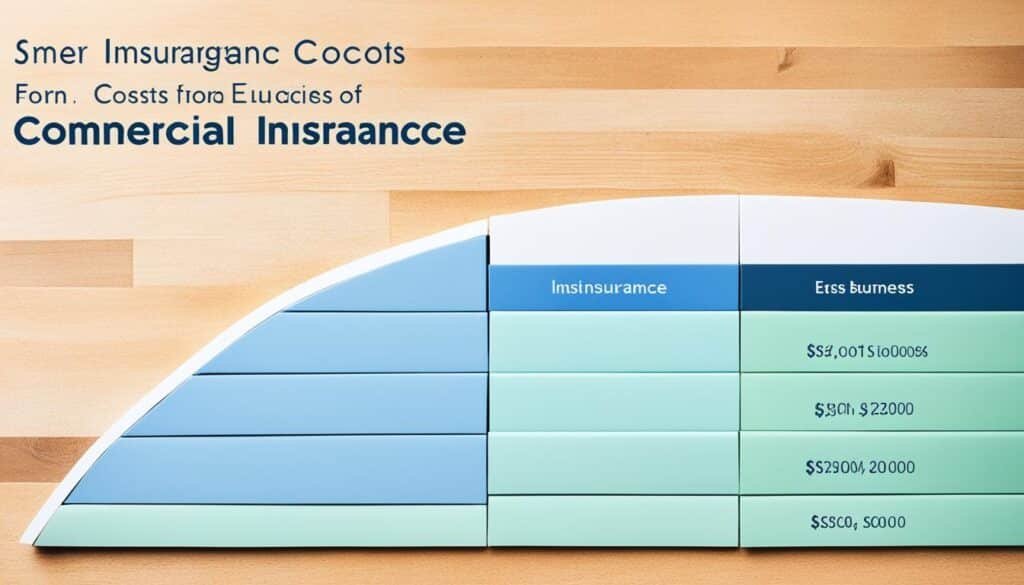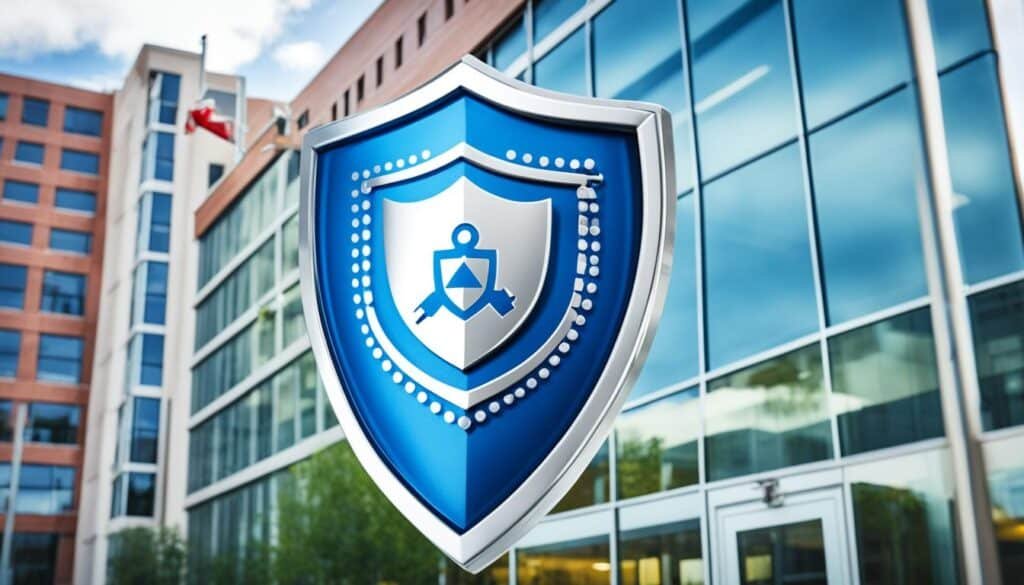Commercial insurance, also known as business insurance, is a vital safeguard for businesses of all sizes. Whether you’re a small start-up or a large corporation, having the right coverage can protect your business from unexpected events and potential financial losses. Understanding the basics of commercial insurance is essential for any business owner.
Commercial insurance provides coverage for various risks that businesses may face, such as liability, property damage, and employee-related risks. It offers financial protection in case of lawsuits, natural disasters, accidents, and other unforeseen circumstances that can disrupt your business operations.
There are different types of commercial insurance policies available to cater to the specific needs of each business. General liability insurance covers bodily injury and property damage claims, while professional liability insurance is designed for businesses that provide services. Property insurance protects physical assets like equipment and inventory, and home-based business insurance is tailored for businesses operating from home.
In addition, there is product liability insurance for businesses involved in manufacturing, wholesale, or retailing products. Vehicle insurance covers any vehicles used for business purposes, and business interruption insurance compensates for lost income due to events that disrupt normal business operations.
As a small business owner, it’s crucial to evaluate your risks and determine the types of commercial insurance coverage you need to protect your business and assets. Commercial insurance allows you to operate without worrying about potential financial exposure from unexpected events.
Key Takeaways:
- Commercial insurance, or business insurance, protects businesses from unexpected events and potential financial losses.
- It provides coverage for liability, property damage, and employee-related risks.
- Types of commercial insurance include general liability insurance, professional liability insurance, property insurance, home-based business insurance, product liability insurance, vehicle insurance, and business interruption insurance.
- Small business owners should carefully evaluate their risks and choose the appropriate commercial insurance coverage.
- Working with a reputable insurance professional can help you find the right coverage options for your business.
What Is Commercial Insurance?
Commercial insurance, also called business insurance, is insurance coverage intended for businesses instead of individuals. It provides essential protection to businesses by safeguarding them from various risks and potential financial losses.
Commercial insurance is designed to protect businesses from unexpected events that could have a detrimental impact on their operations and finances. It offers coverage for a wide range of risks, including but not limited to:
- Lawsuits: Commercial insurance helps businesses mitigate the financial burden of legal claims and lawsuits.
- Natural disasters: It provides coverage for damages caused by events such as floods, fires, hurricanes, and earthquakes.
- Accidents: Commercial insurance compensates businesses for losses resulting from accidents, whether they occur on the business premises or involve company vehicles.
By having commercial insurance, businesses can rest assured that they have a safety net in place to handle unexpected events that could potentially lead to significant financial strains. It allows business owners to focus on their operations and growth without constantly worrying about the potential risks they face.
“Commercial insurance offers businesses the peace of mind they need to operate confidently and efficiently, knowing that they are protected from various risks and liabilities.” – John Smith, Commercial Insurance Expert
It’s important for business owners to carefully assess their specific needs and risks to determine the most suitable commercial insurance coverage for their operations. By comprehensively understanding their insurance requirements, businesses can select policies that provide optimal protection and ensure their long-term success.
How Commercial Insurance Works

When you’re a small business owner, it’s important to understand the financial exposure and potential losses you may face. That’s where commercial insurance comes in. Commercial insurance protects small business owners from unexpected events that could have a significant impact on their operations.
Running a small business involves taking certain risks, but it doesn’t mean you have to bear all the financial burden on your own. Insurance provides a safety net by covering you against potential losses that could otherwise jeopardize your business. It allows you to operate with confidence, knowing that you’re protected if the unexpected happens.
With commercial insurance, small business owners can transfer some of the inherent risks to an insurance provider. If an event covered by your policy occurs, such as property damage, theft, or liability claims, the insurance company steps in and helps cover the costs. This can include expenses related to property repairs, legal defense, medical bills, or even lost income.
By having commercial insurance, small business owners can safeguard their financial well-being. Without insurance, the financial implications of an unexpected event could be devastating, potentially leading to closures or bankruptcies. Insurance protects small business owners from the significant financial risks they may not be able to handle on their own.
“Commercial insurance gives small business owners peace of mind, allowing them to focus on running their business without the constant worry of potential financial losses. It’s a valuable tool for protecting your investment and mitigating risk.”
The Importance of Insurance
Commercial insurance offers numerous benefits to small business owners:
- Financial Protection: Insurance protects you from potential losses that could otherwise lead to significant financial burden or even bankruptcy.
- Legal Compliance: Some types of insurance coverage, such as workers’ compensation, are mandatory by law. Having the right insurance ensures you meet regulatory requirements for your business.
- Peace of Mind: Knowing that you’re covered in the event of unforeseen circumstances provides peace of mind and allows you to focus on growing your business.
- Business Continuity: When unexpected events occur, insurance helps ensure that your business can bounce back and continue its operations without major interruption.
In summary, commercial insurance is a vital tool for small business owners to protect themselves from potential financial losses. It provides peace of mind, guarantees compliance with legal requirements, and allows businesses to operate without excessive risk. Investing in the right insurance coverage is essential for the long-term success and stability of your business.
| Type of Protection | Description |
|---|---|
| Property Insurance | Protects your business property, including buildings, equipment, and inventory, against damage or loss due to theft, fire, vandalism, or natural disasters. |
| Liability Insurance | Covers legal obligations and expenses in the event your business is sued for injury or property damage caused to others. |
| Business Interruption Insurance | Provides coverage for lost income and operating expenses if your business is temporarily unable to operate due to a covered event, such as a fire or natural disaster. |
| Workers’ Compensation Insurance | Required by law in most states, it provides benefits to employees who are injured while working on the job, including medical expenses and lost wages. |
Types of Commercial Insurance

When it comes to protecting your business, having the right commercial insurance is crucial. There are several types of commercial insurance products available, each designed to address specific risks and provide coverage in different areas.
1. General Liability Insurance
General liability insurance is a fundamental type of coverage that protects your business from bodily injury, property damage, and other liabilities. It helps cover the costs associated with legal claims and lawsuits.
2. Professional Liability Insurance
Professional liability insurance, also known as errors and omissions insurance, is tailored for businesses that provide services. It protects against claims of negligence, errors, or omissions that may arise from professional advice or services rendered.
3. Property Insurance
Property insurance provides coverage for physical property, such as equipment, inventory, and buildings. It protects your business from losses due to property damage caused by various events, such as fire, theft, or natural disasters.
4. Home-Based Business Insurance
Home-based business insurance is specifically designed for businesses operating from home. It offers coverage for property, liability, and other risks associated with running a business from a residential property.
5. Product Liability Insurance
Product liability insurance is essential for businesses involved in the manufacturing, wholesale, or retailing of products. It provides coverage for claims arising from injuries or damages caused by the use of your products.
6. Vehicle Insurance
Vehicle insurance is necessary for businesses that use vehicles for their operations. It covers the vehicles against damages, accidents, or theft, protecting your business from financial losses associated with vehicle-related incidents.
7. Business Interruption Insurance
Business interruption insurance compensates for lost income when events like natural disasters, fires, or other disruptions force you to temporarily close or suspend operations. It helps cover ongoing expenses and protects your business from financial setbacks during these challenging times.
Understanding the different types of commercial insurance available is essential for ensuring comprehensive coverage for your business. By assessing your specific needs and consulting with an insurance professional, you can select the right combination of insurance policies to safeguard your business from potential risks.
How Much Does Commercial Insurance Cost?

When considering commercial insurance for your business, it’s crucial to understand the factors that can influence the cost of your policy. Several key elements come into play when determining the price, including the size of your business, the industry you operate in, the coverage limits you require, and the location of your business. Each of these factors can have a significant impact on the cost of your commercial insurance.
The size of your business is an essential consideration in determining the cost of your commercial insurance. Larger businesses typically have more significant assets and operations, which can increase the risk exposure and the potential costs associated with insuring them. On the other hand, smaller businesses with fewer assets and less complex operations may have lower insurance costs.
The industry you operate in is another critical factor affecting the cost of your commercial insurance. Certain industries may inherently carry higher risks and a greater likelihood of claims. For example, construction companies may face higher insurance premiums due to the nature of their work, which involves potential accidents and property damage. In contrast, businesses in low-risk industries, such as consulting or accounting firms, may enjoy lower insurance costs.
The coverage limits you require also play a role in determining the cost of your commercial insurance. Higher coverage limits provide greater protection for your business but generally result in higher premiums. It’s important to carefully evaluate your coverage needs and strike the right balance between adequate protection and affordability.
Lastly, the location of your business can impact the cost of your commercial insurance. Insurance rates can vary between regions due to factors such as local laws, weather conditions, and crime rates. Businesses located in densely populated areas or areas prone to natural disasters may face higher insurance costs to account for the increased risks associated with their location.
It’s worth noting that the cost of commercial insurance can vary significantly depending on the specific needs of your business. The median monthly cost of a business owners policy, a common form of commercial insurance, is around $70. However, this cost can fluctuate based on the factors discussed above, as well as other considerations unique to your business.
| Factors Influencing Commercial Insurance Cost | Examples |
|---|---|
| Business Size | Small business may incur lower insurance costs compared to larger businesses due to the difference in assets and operations. |
| Industry | High-risk industries like construction may have higher premiums compared to low-risk industries like consulting. |
| Coverage Limits | Higher coverage limits result in higher premiums, as they provide greater protection for your business. |
| Location | Businesses located in densely populated areas or areas prone to natural disasters may face higher insurance costs. |
It’s advisable to work with an experienced insurance agent or broker who can help evaluate your coverage needs and find the most suitable commercial insurance policy for your business. By considering the specific factors that influence commercial insurance cost, you can better navigate the insurance market and make informed decisions that align with your budget and coverage requirements.
How to Get Commercial Insurance

Obtaining commercial insurance for your business is an important step in protecting your assets and mitigating risks. Whether you’re a small business owner or part of a larger organization, having the right coverage is essential for peace of mind. Here are some key steps to help you get started:
1. Research Insurance Agencies and Agents
Begin your search by researching reputable insurance agencies and agents. Look for professionals who specialize in commercial insurance and have a proven track record of providing quality services. They should be licensed and well-versed in the coverage options available for businesses like yours.
2. Assess Your Business’s Specific Needs
Before reaching out to an insurance agency or agent, take the time to assess your business’s specific insurance needs. Consider the nature of your operations, industry-specific risks, and potential liabilities. Having a clear understanding of your business’s unique requirements will help you find customized coverage options that align with your needs.
3. Consult with an Insurance Professional
Once you have identified a few potential insurance agencies or agents, schedule a consultation to discuss your insurance needs. During this meeting, you can ask questions, seek guidance, and receive expert advice on the coverage options available to you. An insurance professional can help you navigate through the complexities of commercial insurance and provide tailored recommendations.
4. Explore Online Policy Options
Many insurance agencies offer online policy options for businesses seeking commercial insurance. Exploring online platforms can provide convenience and flexibility in obtaining coverage. You can review policies, compare quotes, and even make purchases directly online. However, it’s still important to consult with an insurance professional to ensure that you select the right policy for your business.
5. Communicate Your Coverage Needs
When working with an insurance agency or agent, it’s crucial to communicate your coverage needs clearly. Provide them with detailed information about your business, including its structure, assets, operations, and potential risks. This will enable the insurance professional to identify the most suitable coverage options and customize a policy that meets your specific requirements.
6. Review and Understand the Policy Terms
Before finalizing any commercial insurance policy, carefully review and understand the terms and conditions. Pay close attention to coverage limits, deductibles, exclusions, and any additional provisions that may affect your business. If you have any questions or concerns, don’t hesitate to seek clarification from the insurance agency or agent.
“Obtaining commercial insurance is crucial for protecting your business from unforeseen risks. By working with a reputable insurance agency or agent, you can secure customized coverage options that align with your specific needs.”
Remember, commercial insurance is an investment in the future of your business. By partnering with reliable insurance professionals and obtaining the right coverage, you can safeguard your business’s financial well-being and protect against potential losses.
Introduction to Business Insurance

Business insurance, also known as commercial insurance, is an essential financial investment for business owners. It provides protection against common losses that businesses may encounter during their operations. By obtaining the appropriate commercial insurance coverage, businesses can safeguard themselves from property damage, business interruption, theft, liability, and worker injury, ensuring their ability to recover and continue their operations.
Business owners understand the importance of financial investment in their operations, and commercial insurance is a crucial aspect of that investment. It acts as a safety net, offering financial protection against potential losses that could otherwise have a significant impact on the business.
Property damage is one of the common losses that businesses may face. Whether it’s damage caused by a fire, natural disaster, or vandalism, commercial insurance covers the repair or replacement costs, ensuring that businesses can recover quickly.
Business interruption, such as disruptions due to natural disasters or major accidents, can lead to significant financial losses. Having business interruption insurance provides coverage for lost income and ongoing expenses, helping businesses stay afloat during these challenging times.
Liability is another aspect that businesses need to consider. Whether it’s a customer slipping and falling on the premises or a faulty product causing harm, liability insurance protects businesses from potential lawsuits and associated costs.
“Business insurance is like a safety net that protects businesses from unexpected losses, allowing them to focus on what they do best—running their operations.”
Worker injury is a risk that businesses must address. With worker injury insurance, also known as workers’ compensation, businesses can provide financial support to employees who suffer work-related injuries or illnesses. This coverage not only protects the well-being of employees but also shields businesses from potential legal liabilities and financial strain.
Overall, business insurance plays a vital role in mitigating risks and ensuring the long-term success of businesses. It provides coverage for common losses, offering financial protection and peace of mind to business owners. By investing in the right commercial insurance coverage, businesses can confidently navigate the uncertainties of their industry, knowing they have the necessary safeguards in place.
In the next section, we will explore the different types of insurance options available for businesses, including general liability insurance, commercial property insurance, business income insurance, and more.
The Right Types of Insurance for Businesses

When it comes to protecting your business, having the right insurance coverage is crucial. There are various options available for business insurance, each designed to address different aspects of risk. Here are some of the key types of insurance that businesses should consider:
- General Liability Insurance: This type of insurance provides coverage for claims related to property damage, bodily injury, and personal injury. It protects businesses from legal expenses and damages resulting from accidents, injuries, or negligence.
- Commercial Property Insurance: Running a business involves investing in physical assets such as buildings, equipment, and inventory. Commercial property insurance protects these assets from loss or damage caused by fire, theft, vandalism, or natural disasters.
- Business Income Insurance: If your business suffers an interruption due to a covered event, such as a fire or natural disaster, business income insurance can provide financial support. It reimburses lost income and helps cover ongoing expenses during the interruption period.
- Professional Liability Insurance: Also known as errors and omissions insurance, professional liability insurance is essential for businesses that provide services or professional advice. It protects against claims of negligence, errors, or omissions that may result in financial loss for clients.
- Workers’ Compensation Insurance: This insurance coverage is typically required by law and provides benefits to employees who are injured or become ill due to work-related activities. It helps cover medical expenses, disability benefits, and lost wages.
- Data Breach Insurance: With the increasing threat of cyberattacks, data breach insurance has become essential for businesses. It helps cover the costs associated with data breaches, including investigating the breach, notifying affected parties, and legal expenses.
- Commercial Umbrella Insurance: Sometimes, the liability coverage provided by general liability insurance may not be sufficient. Commercial umbrella insurance offers additional coverage above the limits of primary liability policies, protecting businesses from large-scale lawsuits and claims.
- Commercial Auto Insurance: If your business owns vehicles that are used for business purposes, commercial auto insurance is essential. It covers damages and liability arising from accidents involving business-owned vehicles.
It is important to assess the specific needs of your business and consult with an insurance professional to determine the appropriate coverage options.
By having the right types of insurance in place, you can protect your business from various risks and ensure its long-term stability and success.
8 Types of Insurance Policies for Small Businesses to Consider

When it comes to protecting your small business, having the right insurance policies in place is crucial. By understanding the various types of insurance available, you can ensure that you have adequate coverage to safeguard your business against different risks. Here are eight types of insurance policies that small businesses should consider:
- General Liability Insurance: This insurance provides coverage for third-party bodily injury, property damage, and related liabilities that may arise from your business operations. It protects your business from potential legal and financial consequences.
- Commercial Property Insurance: Commercial property insurance protects the physical assets of your business, such as the building, equipment, inventory, and furniture, against damage or loss caused by fire, theft, vandalism, or other covered perils.
- Business Income Insurance: Also known as business interruption insurance, this coverage helps compensate for lost income and ongoing expenses if your business operations are disrupted due to a covered event, such as a fire or natural disaster.
- Professional Liability Insurance: This insurance, also referred to as errors and omissions (E&O) insurance, is essential for businesses that provide professional services. It protects against claims of negligence, errors, or omissions that may result in financial loss for your clients.
- Workers’ Compensation Insurance: Workers’ compensation insurance provides benefits to employees who suffer work-related injuries or illnesses. It covers medical expenses, rehabilitation costs, and lost wages, helping to protect both your employees and your business.
- Data Breach Insurance: In today’s digital landscape, data breaches are a significant concern for businesses. Data breach insurance provides coverage for the costs associated with data breaches, including legal fees, customer notification, credit monitoring, and reputation management.
- Commercial Umbrella Insurance: Commercial umbrella insurance offers extra liability protection beyond the limits of your other liability policies, such as general liability and commercial auto insurance. It provides an additional layer of coverage when the limits of your primary policies are exhausted.
- Commercial Auto Insurance: If your small business owns vehicles used for business purposes, commercial auto insurance is necessary. It provides coverage for property damage, bodily injury, and other liabilities arising from accidents involving your business-owned vehicles.
It’s important to note that the specific types of insurance your small business needs will depend on the nature of your operations and the industry you’re in. Consulting with an experienced insurance agent or broker can help you identify the right policies to protect your business adequately.
Having the right insurance policies in place can provide you with peace of mind and protect your small business from unexpected losses. By considering these eight types of insurance coverage, you can ensure that your business is well-protected and prepared for any potential risks that may arise.
How to Choose the Right Commercial Insurance Policies

When it comes to selecting commercial insurance policies for your business, it’s crucial to take into account the industry-specific risks associated with your operations. Each industry has its own unique set of challenges and vulnerabilities, and understanding these risks is essential in choosing the right coverage to protect your business.
In addition to industry-specific risks, regulatory requirements may also dictate the types of insurance your business needs. Certain industries, such as healthcare or construction, may have specific insurance mandates that you must comply with to operate legally. Familiarize yourself with the regulatory landscape of your industry to ensure you meet all necessary insurance obligations.
Furthermore, it’s important to assess your business operations and identify your insurance needs. Consider the nature of your business, the size of your workforce, the value of your assets, and any potential liability exposures. This evaluation will help you determine the specific coverage options that align with your needs and provide adequate protection.
Consulting with an insurance agent or broker can be valuable in navigating the complex world of commercial insurance. These professionals have expertise in assessing risks and identifying appropriate policies for businesses. They can guide you through the process and help you make informed decisions to safeguard your business.
| Industry-Specific Risks | Regulatory Requirements | Business Operations | Insurance Needs |
|---|---|---|---|
| Identify risks associated with your specific industry | Stay informed about regulatory obligations | Assess your business operations | Identify the right insurance coverage |
| Take into account potential hazards or vulnerabilities | Ensure compliance with industry-specific insurance mandates | Evaluate the size of your workforce and assets | Consider liability exposures and potential financial impact |
| Understand the impact of industry trends | Review any legal requirements for insurance coverage | Explore the scope of your business activities | Determine the coverage limits and policy features necessary |
By carefully considering industry-specific risks, regulatory requirements, your business operations, and insurance needs, you can make more informed decisions when choosing commercial insurance policies. Remember that having the right insurance coverage is crucial for protecting your business from unexpected events and securing its long-term success.
Also Read: What Are The Benefits Of Choosing Infinity Insurance?
Conclusion
Commercial insurance plays a crucial role in protecting business owners from potential losses and liabilities. With the right coverage, business owners can mitigate risks and ensure the continuity of their operations. Whether it’s safeguarding against property damage, legal liabilities, or other unexpected events, commercial insurance provides the necessary risk protection.
It is imperative for business owners to carefully evaluate their insurance needs and work with reputable insurance professionals to find the best coverage options. By partnering with experts in the field, business owners can gain valuable insights and customize insurance plans according to their unique requirements.
Don’t leave your business vulnerable to unforeseen circumstances. Invest in commercial insurance, understand the importance of risk protection, and secure the future of your business.
FAQs
Q: What is commercial insurance?
A: Commercial insurance is a type of insurance that provides coverage for businesses and their assets, such as commercial property, liability, and vehicles.
Q: Why does my business need commercial insurance?
A: Commercial insurance is important to protect your business from financial losses due to unexpected events, such as property damage, lawsuits, or liability claims.
Q: What are the common types of commercial insurance?
A: Common types of commercial insurance include commercial property insurance, business liability insurance, commercial auto insurance, and cyber insurance.
Q: How can I find the right commercial insurance coverage for my business?
A: To find the right commercial insurance coverage for your business, you can get a customized insurance quote tailored to your specific needs and risks.
Q: What does commercial property insurance cover?
A: Commercial property insurance covers your business property, such as buildings, equipment, inventory, and furniture, against perils like fire, theft, and vandalism.
Q: How much does small business insurance typically cost?
A: Business insurance costs vary depending on factors like the type of business, coverage needed, location, and size of the business. Getting a custom insurance quote can help determine the cost for your specific situation.
Q: How can I get a customized commercial insurance policy for my business products?
A: You can get a customized commercial insurance policy tailored to your business products by contacting an insurance provider and discussing your specific needs and risks.
